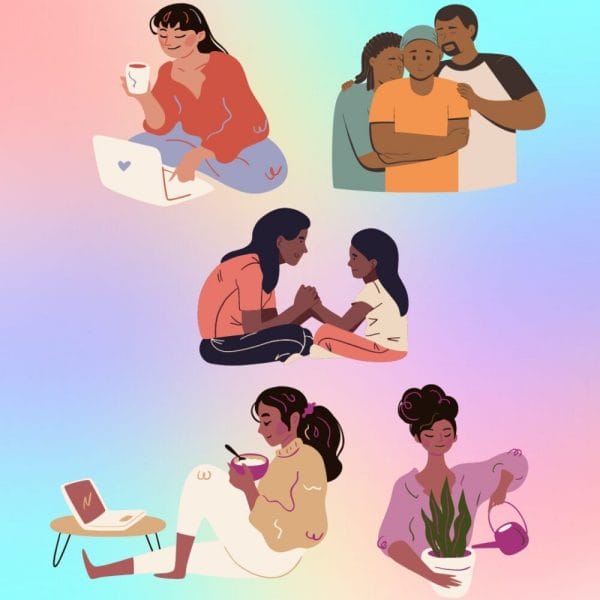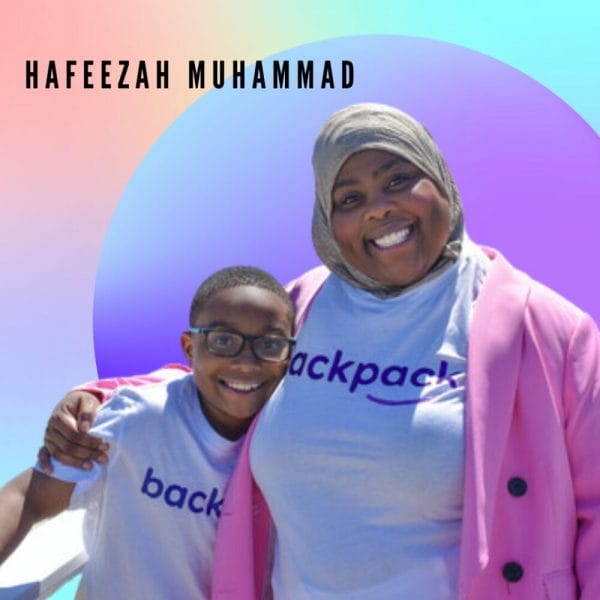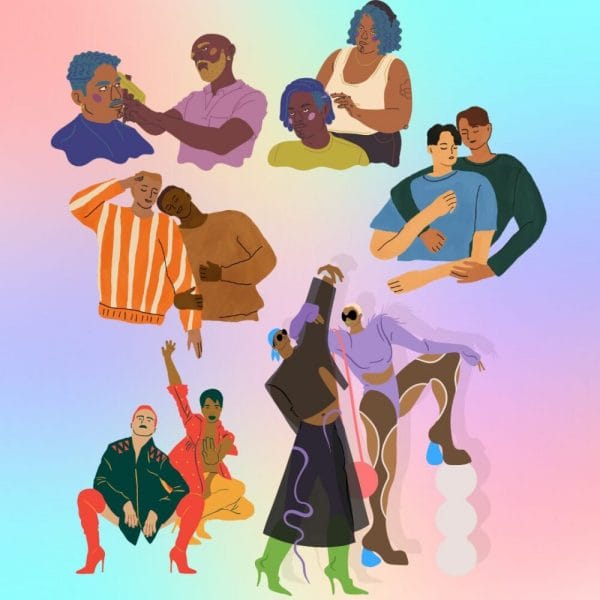The world is at a critical juncture in addressing the mental health and well-being needs of young people. After decades of inadequate response to youth mental health, exacerbated by the pandemic and the unknown mental health impacts of climate change, we have the opportunity to bring in a new form of systemic care that truly supports all young people. For most of modern history, mental health was understood as something being wrong with a person and often used as a tool to suppress people who experienced the world differently. We must now work to mend the deep remnants of outsized oppression and violence women, queer folks, and people in the global majority often experienced in old forms of mental health support systems.
As a young person who lived through the transition from old to new — both as a recipient of systems services and then a designer of mental health programs for young people across the world —I can confidently say these changes are for the better. However, outdated methods still persist, such as the use of conversion therapy still allowed in the United States. We must do more to advance the next paradigm of youth mental health. We need to ensure that young people today are met with the most loving, supportive, and nuanced care, as they respond to the complex challenges that come their way. The following recommendations highlight what we can collectively do to usher in the next era of systemic support for young people’s mental health and well-being.
Moving from fixing to becoming
One of the most unhelpful aspects of the old paradigm is a discourse on needing to ‘fix’ young people who struggle with mental health challenges. Beyond reducing young people to a problem that can simply be fixed, these messages created a toxic culture whereby young people were set up to fail by their adult allies and loved ones. The misplaced binaries historically put on young people —such as being broken versus fixed, sick versus well, good versus bad, and mentally unwell versus healed —all contradict present-day understandings that mental health exists on a fluctuating continuum that evolves throughout our lives. Just as we transform as humans, so does our mental well-being. We must move into a space that sees mental health and well-being as an act of becoming who we are meant to be as people and as community members, centering the inner healing intelligence we all possess to chart our own lives and experiences. This shift involves fewer binaries, less domination, less control from the outside, and a more expansive view of the human experience, approaching each individual with love and curiosity.
Challenging the hang-up with technology
Over the past decade, many young people I’ve worked with have recognized both the mental health costs of technology and its power to foster connection, community, and learning. During this time, we’ve seen a rapid increase in funding for tech-based mental health solutions for young people. For instance, major funding from Melinda Gates Pivotal Ventures has gone into this area. While important, there has been much less effort to engage young people in spaces that enhance human connection and belonging. With the rise of AI and increasing investments in technology, we should consider how these tools can help us refocus on what truly matters: cultivating meaningful relationships with the people and the natural world around us. How can these technologies facilitate reconnection and help us restore what rapid advancements may have taken away?
Seeing young people as beings who experience the sacred
My first memorable healing experience in therapeutic treatment was a sacred one. I came to the realization that my mental well-being was inseparable from a sacred connection to the natural world. From that point on, nature became one of my primary sources of healing and I began to deconstruct concepts that separated mental health and spirituality. Then, when working with other young people in recovery and struggling with a range of life challenges, I learned that they too see themselves as spiritual beings and often find it problematic when their own sacred experiences are diminished by systems and people trying to support them. Core to sacred experiences with young people is the journey of finding out what matters most and how one wants to be in service to that which is most meaningful. Historically, mental health work has diminished the role of sacred and spiritual experiences young people have. I believe this has been a massive shortcoming of youth mental health systems globally. Moving forward, we must find ways to invite young people to explore what is sacred to them as part of healing work and to embody their innate spiritual power.
I invite you to imagine what would be possible if we opened ourselves to these directions. At the end of the day, young people need love in their lives and it is up to those working to support them to rise to that need. The sooner we address the remnants of the old and welcome a different way of being, the faster we will be able to truly address the rising youth mental health crises faced across the world.
With love,
Lian
About the author:
Lian is a community mental health and healing expert with 10+ years of experience working at the intersection of mental health, human flourishing, youth development, collective healing, and contemplative wisdom. He believes in aligning strategic, political, ethical, and spiritual dimensions of practice to achieve transformation in the world. He is a trained facilitator, chaplain, and mental health first responder who blends healing-informed practice with systems thinking.
He currently serves as an Associate Director at The Collective Change Lab. Most recently, he co-founded the Climate Mental Health Network, a non-profit focused on addressing the mental health consequences of the climate crises and received a Master of Divinity degree at Naropa University.




